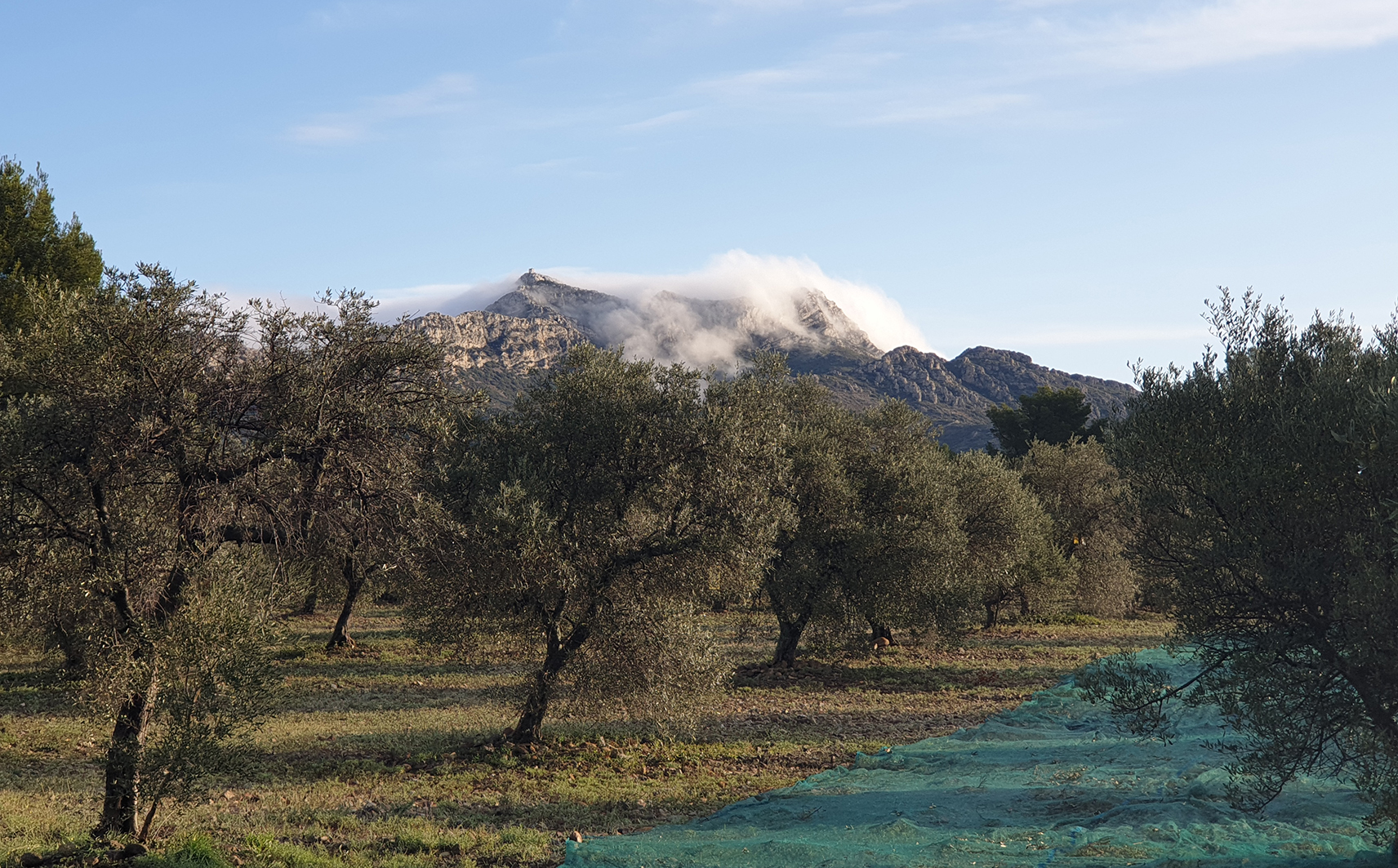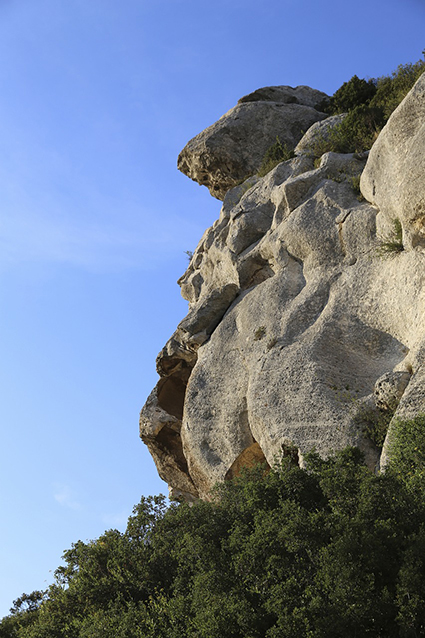The origin of olive oil estate Les Opies … a tale of friendship.
Epicurians, travellers, art and food lovers, Philippe Boegli and Bertrand Daudey leave northeastern France during the 1990s.
They met in Aix-en-Provence and discovered a shared passion for Provence- its history, architecture, and gastronomy. Driven by a common desire to return to the land and contribute to the preservation of Provençal culinary heritage in a world where standardization is homogenizing, if not erasing, traditional flavors, they created Domaine Les Opies in Eyguières, a former Provençal village nestled on the southern foothills of the Alpilles and nourished by spring waters.
Back then, they didn’t have any experience in olive growing, but they had a strong desire to make the healthiest olive oil they could, for themselves and their kids. Between 2012 and 2015, they gradually built up 4 hectares of olive groves, with 700 trees that had never been treated with synthetic chemicals. In 2013, they produced their very first batch of 100% natural olive oil, certified under the Nature & Progrès label.
The exceptional view from the estate over the Opies massif, the highest peak in the Alpilles at 498 meters, naturally gave the domain its name. Because nature is a treasure worth protecting, and because it already holds everything it needs, the estate’s olive oil is produced in an artisanal way: 100% natural, intentionally small-scale.
We see each olive tree as a living soul we’re in dialogue with, and every oil reveals its own unique character and flavor, the essence of the Opies.
The year of transition
At the end of 2024, Bertrand Daudey takes full ownership of Domaine Les Opies, expanding it by an additional 3 to 4 hectares, including a small plot of land in the nearby village of Aureilles. With this new chapter, he redefines the estate’s vision: to make the 100% natural olive oil of Les Opies accessible to all true olive oil lovers, not just the privileged few.


The Alpilles region
Wild and unmistakably Mediterranean, the Alpilles mountain range is home to Domaine Les Opies. Stretching under the sun from the southern edge of Avignon to the gateway of the Camargue, the massif unfolds gently across the landscape. Though modest in height, the Alpilles reach their summit at the Tour des Opies, a name that comes from “Aupiho,” the Provençal word for Alpilles, rising to 493 meters.
On limestone and clay soil, the valleys welcome olive groves as far as the eye can see. These majestic species with their presence going back to prehistoric times can live up to 300 years and can regenerate even after facing major destruction due to its almost indestructible root system.
Geologie and soils
The climate of the Alpilles
The Mediterranean climate of the Alpilles is marked by strong variations in temperature and rainfall. Annual precipitation averages around 700 mm, spread over about 50 days, mainly in autumn and spring, often with intense thunderstorms. Summers are dry and hot, sometimes scorching, with exceptional sunshine that exceeds 2,800 hours per year. Winters are mild, with January being the coldest month. The average yearly temperature is 13.6°C, though there is a risk of spring frosts on the northern slopes of the Alpilles. Our olive groves are sheltered from the strongest winds, although the Mistral (a north wind) and the Tramontane (a west wind) blow more than 100 days a year. These steady winds support the pollination that our olive trees depend on.
These climatic conditions shape a unique flora and fauna, well adapted to long periods of drought. In the lands of the Opies, you might spot a Montpellier snake or an eye-catching ocellated lizard. The area is alive with birdsong, from the southern grey shrike and ortolan bunting to the Dartford warbler and the blue rock thrush. Birds of prey also rule the skies here, including the famous Borelli’s eagle, known for its spectacular flights and dives.
Olive groves are mostly located on stony limestone soils and the total limestone rate on average 25%, can reach 40%. The amount of active limestone is limited to 8%. The pH of the soil varies between 8 and 8.5.
The olive-growing estate is home to the four typical varieties of the Vallée des Baux-de-Provence PDO: Berruguette/Aglandau, Grossane, Salonenque, and Verdale des Bouches-du-Rhône, along with a smaller presence of Picholine olives.






